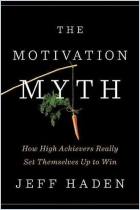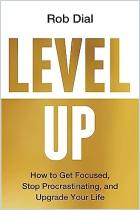Join getAbstract to access the summary!

Join getAbstract to access the summary!
Jeff Haden
How to Use the Two-Week Rule to Become Remarkably Successful (and Optimize Your Bucket List)
Two weeks is all it takes to find out what a goal means to you. And what you're willing to do to achieve it.
Inc., 2022
What's inside?
An intense two-week commitment could help kick-start your efforts to reach a major goal.
Recommendation
How often have you set yourself a lofty goal only to abandon it after a lukewarm approach or weak commitment makes success seem overwhelming and unattainable? Achieving a big goal is hard, and emotional fatigue can get the better of you. Jeff Haden, author of The Motivation Myth, offers a simple life hack to increase your chances of success: Commit to your goal for just a fortnight. After two weeks of dedicated work, you’ll start to see the fruits of your labor emerge, and you can then decide whether your goal is worth pursuing.
Summary
About the Author
Jeff Haden is a contributing editor to Inc. and author of The Motivation Myth: How High Achievers Really Set Themselves Up to Win.


















Comment on this summary